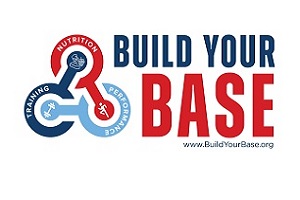Outside Coach?
More and more, athletes and/or their parents are questioning the abilities of the person selected as their school's Head Coach for track and field. In many cases, their worries are needless, as there are a great many individuals who have more than enough ability to coach the athlete. They do not necessarily have to have a background in the sport. What they MUST have is an overwhelming desire to learn on the job so they can do a quality-coaching job on the athletes entrusted to their care. To that end, USATF offers coaching clinics of varying levels so individuals can learn more and do a better job. That these clinics are usually filled is testament to their desire to improve their coaching skills. However, there are several problems such individuals face. Like Joseph's coat, track and field is a sport of many colors. The coach must master numerous skills. Consider, in the sprints alone there are at least 5-6 factors that must be taught if an athlete is to be successful. THE START: Go get as stopwatch. Start and stop it as fast as you can. If you're quick, you'll get a time around 1.3-1.5 seconds. Have you ever stopped to realize that the 1.3 — 1.5 seconds you lose due to a poor start is all that separates you from being a fair sprinter to being a good sprinter? And from a good one to a very good one? STRIDE LENGTH: Have you ever watched a great sprinter's stride length? Almost all have a 7' — 8' stride. How do you improve your stride length? It's a skill that can be taught…and learned. THE FINISH: How often have you read about a sprinter being out leaned at the tape? One more skill that can be taught…and learned. There are several more that time and space do not permit me to mention. However, a good coach can tell them to you as well as teach you those skills. However, this is just one event. What about the skills necessary to adequately teach the POLE VAULT, HIGH JUMP. SHOT PUT, DISCUS, LONG AND TRIPLE JUMPS, JAVELIN, THE STRATEGIES FOR RUNNING THE 400M, ETC. The list is virtually endless. There are far more skills involved in track and field than in football. Yet very few t&f teams have anywhere near the number of coaches as does football. I recall a coach coming to the National Scholastic meet from Lutcher, Louisiana. He brought a very good hurdler. We talked and he told me he was the outside RIGHT linebackers coach. There were separate coaches for the LEFT side and the MIDDLE linebackers. Now right there you have three coaches working with a very small number of kids. How many t&f teams even have three coaches? Well, after 33 years as a high school coach, I can tell you…very few. Most have two and often of dubious ability. I once had a young man assigned to me as my Assistant who came to me after an indoor meet at West Point, home of the US Military Academy and quietly informed me the kids had stolen several 'cannon balls' and brought them to the bus. He was serious. I gently pointed out to him his 'cannon balls' were actually shot puts and it was OK for the kids to have them. Therefore, the job of the t&f coach is immensely difficult. He/She must be an expert in far more than one event. Can she coach sprinters and distance runners equally well? Is he able to point out the many nuances of the pole vault? Can she cogently point out the takeoffs for the long jump and triple jump are completely different? Does he know how to set up a race plan for an upcoming mile that has several different type competitors? Sadly, the answer to most of the above is "NO!" How are t&f coaches chosen? If you answered "Haphazardly", you're probably right. Far too often, the job is given to a football coach who wants to earn a little extra money. My first coaching job was one such. The coach, a terrific football coach, got the t&f job because his wife was expecting and he needed some extra income. What were his t&f qualifications? Who cares!!?? It's only track. With these type coaches, you have a real problem. Invariably, he will concentrate on the natural abilities of his so-called skill players from football; the wide receivers, defensive backs and, sometimes, linemen who are fast. Thus, he gets by with some decent sprint times, a fairly good 4x100m relay and a passable weight man or two. Unfortunately, my predecessor didn't really care. Practices usually meant sitting around on the grass talking football. In the eight years prior to my taking over, the team had won ONE medal at a "big" meet, a bronze in the 4x1 at the league relay championships. For women's teams the situation is usually as bad or worse. Recently I spoke with just such a coach at the high school level. She is doing a pretty good job. When asked about the Middle School program, she answered that the coaching job usually was filled at the last minute and turned over almost every year. So, as a result, the Head Coach had no feeder system to speak of. When I watched the team's sprinter practicing starts, I was appalled. NOBODY KNEW ANYTHING! Every kid had a different concept of setting their blocks, every kid stood upright a few tenths after the gun sounded and all lost about .4-.5 tenths in the first 10 meters! So what's a parent to do when they KNOW their child has great potential but will go nowhere due to poor coaching? Many parents take over coaching their child. Some do it well; most do not even when they have some knowledge about their kid's event. I had two sons and coached them. Both quit the team. Why? Too often parents make one of two mistakes. They, in an effort to not show favoritism, treat their sons/daughters much stricter than they do the others OR they take the coaching home and it becomes a topic at the dinner table, usually one leaning more on criticism than encouragement. What happens? The kids never get a fair break nor a break from their sport. Practice becomes something to dread and they decide it's not worth it so they quit. Thus, we come to the role of the Outside Coach. He/she is almost always a person who has been involved in the sport but never became a teacher/coach. (Most coaches are teachers. In many cases, teacher's organizations insist that a teacher, regardless of qualifications, be given a coaching job over an 'outsider'.) These 'outsiders' are often well-known within the community as are their experiences with a particular sport. Thus, when a parent knows that Ms. Jones was a very good sprinter in college, the parent asks if they will give little Jessie some pointers. Mr. Smith just won a 5k race in town and the newspaper mentioned he'd been the conference mile champion several years back. It was my good fortune to be approached about coaching a young woman who ran for a high school with no indoor track program. The girl had just run a terrible race, was sobbing in a corner and I went over just to offer a few words of encouragement. Her parents overheard, liked what I was doing, asked around about who I was and called me a few days later asking for my help. At the time, I spending less time with the National Scholastic Sports Foundation and had some time on my hands. I said 'Yes" I'd be glad to help. Thus was born my involvement with Sarah Bowman. She, as many of you know, became a great high school runner, the best ever in my humble opinion and now attends the University of Tennessee. So, she and I practiced away from the high school team. It wasn't that we had an aversion to working with the team but rather a deep-seated anger on the part of one of the coaches towards both Sarah and me. Sarah, because she has chosen to work with me; me, because I had chosen to work with Sarah. But, we made it work although it became extremely difficult for Sarah. I will always admire her for the way she managed the situation. When offered a spot in the Prefontaine Classic in Oregon, she turned it down (to my dismay) since it was on the same day as her team's state meet and Sarah knew how much her points meant to the team. So, she went to the states, won three events, anchored a winning relay and placed second in the high jump contributing 48 points to the teams winning about 60. Unbelievably, the coach never thanked her for what she did nor expressed the slightest gratitude for Sarah's skipping one of the finest track meets in the nation so she could be with her team. In this case, all went well. I knew what I was doing; Sarah set certain goals and knew I would help her achieve those goals and we both earned the respect of the other. Interestingly, when we went to the USATF Junior Nationals, Sarah and two other truly outstanding distance runners were talking about their outside coaches. All three agreed they would have never become the runners they were, and believe me these kids were GOOD, had it not been for their outside coach. None evinced even the slightest interest in going back to their high school coach under any circumstances. So exactly what does an outside coach have to offer that a high school coach does not? Several things. Most importantly, TIME. The high school mentor has to coach the entire team; the sprinters, jumpers, throwers, relays, hurdlers while also handling the many problems that invariably arise. Kids skipping practice, dogging it, fighting with other kids, jealousy, parental interference, and the list is endless. The outside coach works with ONE athlete, has the full cooperation of the parents, has none of the endless problems just mentioned and, MOST IMPORTANTLY, has TIME. The youngsters I've had the pleasure of working with have always mentioned, when asked about our relationship, how much they had learned. The outside coach can sit and talk with the athlete for an hour or more, teaching about race strategy, how to set up a race plan, tactics, scouting reports on others in the upcoming race, what to eat, why we're doing what we're doing, how the training is progressing, what the future holds, why should there be a goal, not only for every race but for every practice and on and on. The high school coach doesn't have that luxury. Should YOU consider hiring an outside coach? It's not as easy a decision as you might think. What will the high school coach do? If he/she is antagonistic, can your son/daughter handle it? What will the teammates do? How about the other parents? If your youngster cannot handle such pressure do you still want to continue? Should you continue? The answer should come from your child. It's up to YOU to explain all the pitfalls that may occur. It will be up to YOU to confront an antagonistic coach. If you feel the outside coach route is, the one you should take and that it will be in the best interest of your child, talk it over with them, listen carefully to their concerns and then the two of you make a decision. Finally, let me recount a story I was just told by a friend. He went to interview for a publishing job. During the interview, he showed some of his work to the interviewer who happened to have a daughter who was a pretty good runner. The piece happened to include a mention of my name. She said, "I know Mike. We always hoped he would contact us about working with Mary." I never even thought of it. It's your job, after you have made your decision to seek outside help, to go to your choice and see if they are interested. Coaching is a time-consuming task. EVERY afternoon, I would spend 2-3 hours with my kid. No time for golf, grandson baby-sitting; the afternoon belongs to your athlete. If you'd care to speak with me about this, please feel free to contact me: fmbyrnes@aol.com Thanks for reading this, I hope it was helpful. mb




